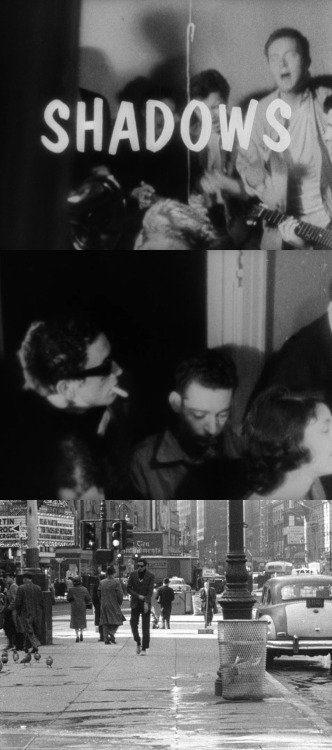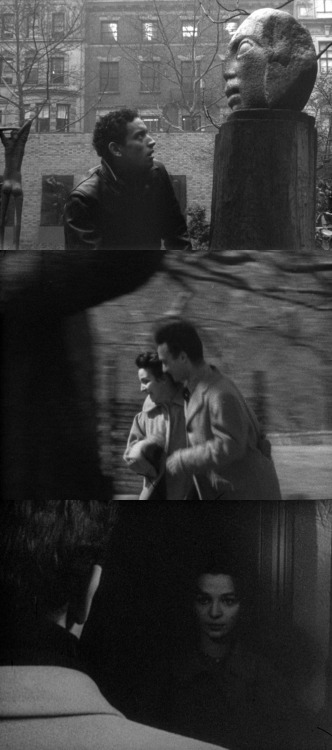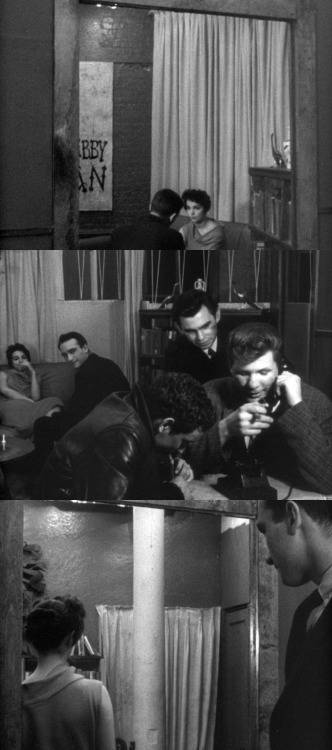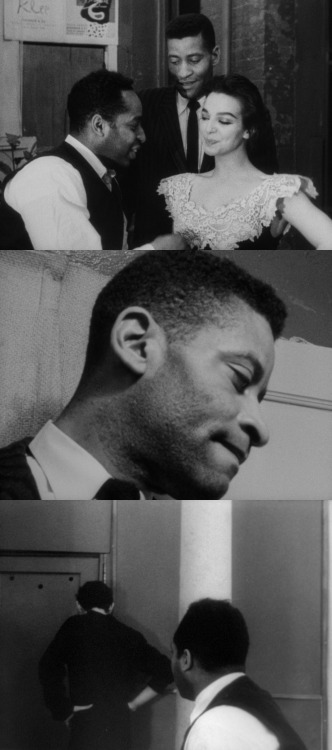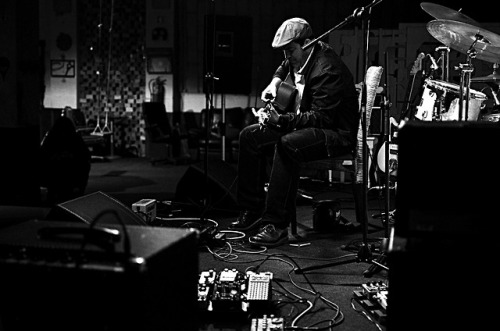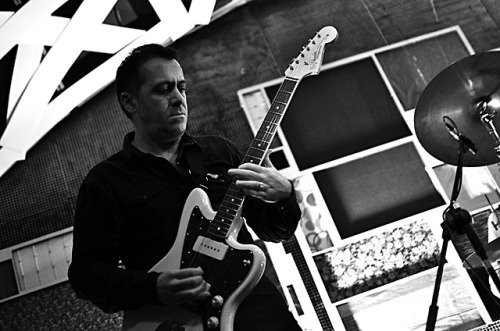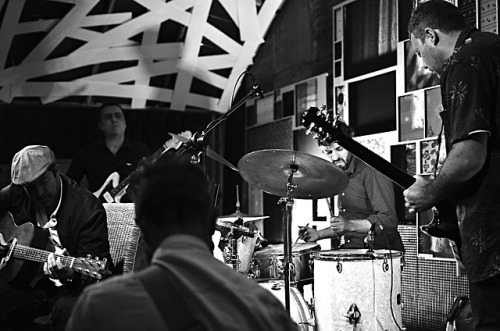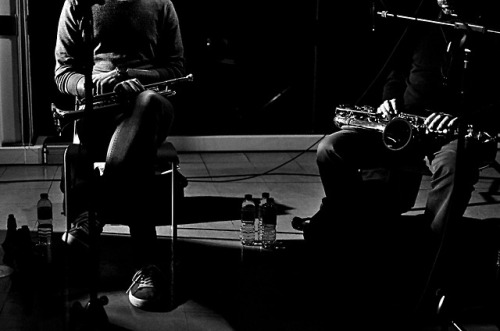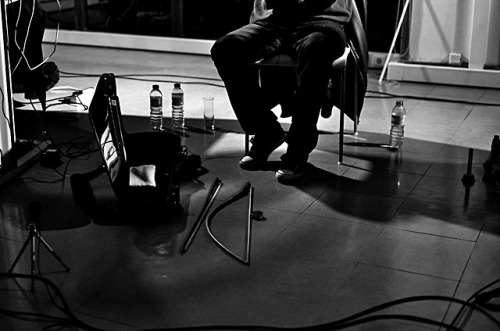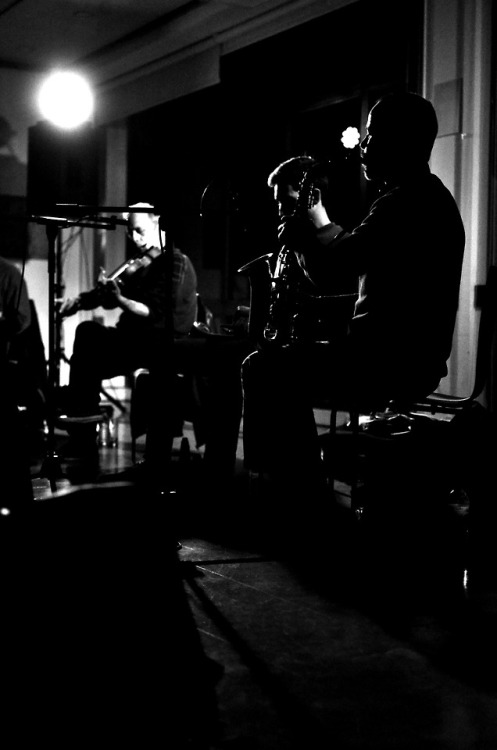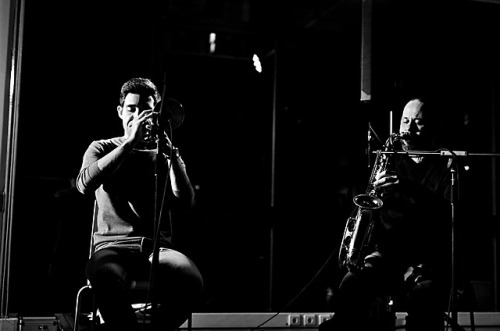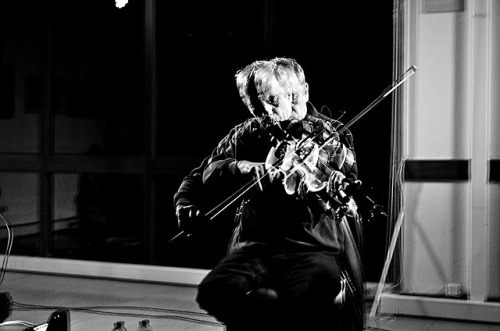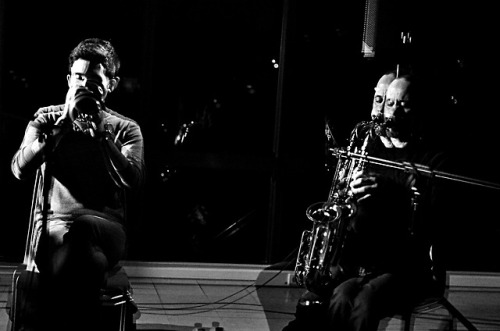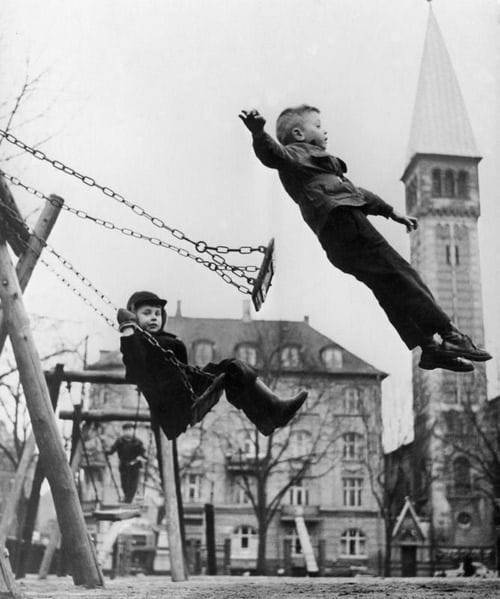#improvisation
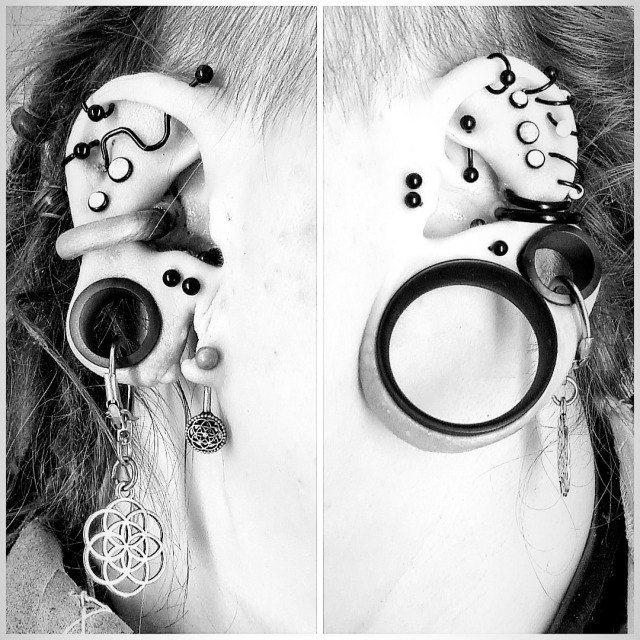
Improvisation is often the best tool to make the best out of the options that are given.
Right ear:
20mm tunnel
6mm conch
2x Anti-tragus
2x Flat
2x Helix
Custom industrial
1.6mm Lobe
.
Left ear:
40mm tunnel
20mm tunnel
2.4mm conch
3mm conch
Anti-tragus
2x Tragus
6x Helix
3x Flat
Rook
It’s been over eight years (?!) since I performed a Harold, but I just did one in a dream, complete with thinking on the backline and running to the booth to set up a song cue for my second beat.
Whoever said life is a Harold… they weren’t kidding.
For a very long time, I was part of a theater’s house team system. (I’m not anymore, for a variety of reasons that I’ll delve into in future posts. Stay tuned!) For the uninitiated, the house team, in a nutshell, is the ultimate goal for an improviser with an allegiance to a particular theater. Basically, you go through the levels at the theater’s training center, after which you’re eligible to audition for placement onto a team. That team can last anywhere from several months to several years, and gives performers the chance to perform weekly in front of an audience.
It should come as no surprise that women are the minority on these institutional teams - after all, there are still statistically fewer women doing improv than men, overall. Looking at the makeup of teams at the three largest New York theaters, the gender ratio sits at about 30% women to 70% men. Some theaters’ teams are more balanced than others, but on average you’re looking at two to three women per team. Speaking from my own experience, I was a member of five different house teams from 2006 to 2014, and for the majority of my time on these teams, I was one of two women. (Though, I should note that in 2009, I was a member of one of only two teams in the theater’s history that was split 50-50 between men and women. That team also happens to hold another badge of honor in the theater’s history, as one of the shortest-lived teams ever assembled. We were, in a word, terrible. Gender equality does not beget quality shows, my friends!)
So, what does it mean, exactly, to consistently be one of only two women represented on stage, on a night that is intended to represent, theoretically, the best talent the theater has to offer? How does being in that minority change the way you play and the character choices you make, and the way you interact with your fellow players? How does it change the way you view your position and your self-worth as a player, both on that team and in that system as a whole? What impact does it have on your relationships and interactions with other women on your team and/or in the system, both on stage and off? How does the competitive nature of the team system as a whole play into the greater notion of what it means to be successful, and what does it mean for a woman to want, need, and attain that success?
I have framed these all as open questions, but, as far as I’m concerned, they are definitive statements. (And there are a lot of them, hence why this post is part I! Otherwise, this post would be about 100,000 words long, and not even I have that much patience for my own writing.) Listen, I would love to sit here and tell you that my house team experience was no different because I was a woman, that I felt entirely equal to my male counterparts on any given night, that I “held my own” every single time, but that is categorically untrue. My experience as a female improviser on these teams *was* different precisely because I am a woman: it was different in exceedingly positive ways, and profoundly negative ways, too. I look forward to sharing these with you in this series of posts.
Today, I want to begin to address this topic by talking about the question of responsibility and representation, and specifically, the sense of responsibility a female improviser feels when she steps on stage as part of a theater-appointed ensemble. I have a theory, and it is this: because they are in the distinct minority on these teams, female improvisers often feel a unique burden of responsibility to represent for their entire gender on stage. We feel that it is our job to play strong female characters on stage, and make the sorts of confident, layered, interesting and - maybe most importantly - funny choices that best represent women as a whole. Because there are fewer of us, and because a selective, competitive process brought us here, we as women on stage in this capacity feel like we have to prove ourselves worthy of being there at all. I can pretty much guarantee that this feeling of responsibility has never crossed the minds of the guys on your team, which, too, makes total sense: white male improvisers feel no sense of obligation to represent their gender on stage, because it’s already wholly, dominantly represented literally everywhere. I don’t fault anyone for that, but I think we can all agree that it’s the truth.
I felt this sense of responsibility on every team I was on, the good ones and the bad ones. It can be incredibly empowering at times, and it can also severely limiting. Let’s start with the empowering part first. It’s an amazing feeling for any improviser to step out on stage and kill it by making a definitive, confident character choice, but I think it feels like a special sort of win for a woman in a male-dominated field. I’ll give you an example: when I was my last house team, I had a go-to character which could best be described as a Grade A Bitch. Whenever I did this, it fucking destroyed every single time, which I think was the result of the combination of me always being so much smaller than my scene partner, and the fact that I’m not a bitch in real life. It was an empowering choice for me at that time, because it allowed me to have the last word and the dominant voice in the scene and on that stage. (The irony doesn’t escape me that I did this by playing a terrible person and a total stereotype, by the way.) In portraying this character, I felt like I staked my claim, and by getting a huge audience response and driving the scene, that I had lived up to my responsibility and showed that I was a masterful improviser who could hold my own among the guys up there.
Conversely, that burden of responsibility was especially heavy in the shows where I had scenes that didn’t land. I can remember plenty of nights where I was given a great opening line by my scene partner that I either completely denied/negated out of fear, or just simply didn’t know how to reply to. Instead of making a strong choice, I made either a weak choice, or, worse, no choice at all. We’ve all been there, and the resulting scene feels like the longest, most painful three minutes of your life and may lead you to question every decision you made that brought you to this point, or at least it did for me. When those scenes were given mercy edits, I retreated to the sidelines feeling a sense of gratitude that the scene was over and that I could finally stop sweating, but even larger than that, a sense of profound disappointment in myself, like I had failed myself as both an improviser *and* a woman by showing that level of weakness. I felt like I was letting everyone down.
I don’t have a single, easy solution to easing this burden of responsibility, but then again, this blog is not about neatly tying things up, especially since improv can be such an intensely personal and subjective experience for people. I will say this: Knowing what I know now, and doing the work that I’m doing presently, I wish I could go back in time and tell my former house team-member self that, in terms of gender or anything else, the only responsibility I had was to myself and creating good work. The newfound confidence I have in my abilities as a performer since graduating from that system has allowed me to begin to let go of the feeling of needing to represent for my gender. I believe that that level of confidence is more difficult to find in a team system, as it is a system that is built on inherent competition.
That being said, I think there are ways to lift that burden for women who are presently on these teams, I really do, and it lies in a fundamental change in the way improv is taught and the ways that teams are directed, and the way gender is addressed in the improv classroom, with both men and women. That’s a topic for another day, so for now, I’ll leave you for the weekend by inviting you to share your own thoughts and experiences in this area, if you wish! To be continued! See you Monday!
Without a good teacher monitoring, most improv exercises favor bold, aggressive students. Whoever either thinks faster or at least acts fastest tends to affect the scenes more and therefore have more chances for feeling validated that they are doing well. While there’s a place for boldness (and certain exercises explicitly focus on being more bold), any good improv team has a mixture of aggressive types with more patient and calm energies.
Believing that, here are five simple rules of conduct which I think help the less aggressive students find their footing in lower level improv classes. These are also just common sense policies for fair play. They’re not meant to leave out aggressive students. And I never state them as being “for the students who are bit more hesitant.” They’re just good etiquette for improv scenes which happen to also help the non-alphas find themselves in the scene.
Merely my opinion: Take ‘em or leave ‘em, fellow teachers!
Initiation Etiquette / ”Be Comfortable With Silence”. Students should not interrupt or finish someone else’s initiation: very commonly done by eager alpha bulldogs in lower levels. Teach that whoever moves first gets focus and a generous amount of time to make their move. The person who responds also gets a lot of time before they have to answer. Discourage the very common practice of talking until you are interrupted. “Be comfortable with silence” I will say a lot.
It’s Okay To Not Know Cultural References. After the first scene in class that happens to mention a movie/book/song/TV show — I point out that they’re not expected to know every movie, book or current event that gets brought up. They SHOULD try to fake it based on context or else admit in character that they don’t know it. And if they are the one who is bringing up a reference and their scene partner doesn’t know it, then it’s their job to help. This affects younger students’ confidence far more than I had appreciated — teach them how this works. (The other side of this coin is that after you’ve taught them how to handle references, no one is allowed to bail on a scene because they don’t know something.)
Protect Decisions To Play Against Type. Gently point out when someone misses their scene partner’s attempt to play against type (gender, age, etc). It’s bad listening and invariably happens to people already feeling left out. Correct whoever misheard as a casual note, not a lecture. “He’s being your mother, not your father.” Or “That’s a teenager talking, not a mom.” Be vigilant for this in the first few sessions especially.
Set Boundaries. This is a class, not a team. Students see very physical and intrusive things on stage at shows. They need you to make clear and enforce that that’s not for class, where people don’t know each other well. Though everyone would assume this to be true, it helps to have the teacher explicitly say it.
You Are Allowed To Say No. You are always allowed to “say no” in a scene to ANYTHING that your character wouldn’t want to do. Like if someone starts a scene by asking if you want a lap dance or maybe wants to steal someone’s baby from a hospital nursery, and your character wouldn’t want to, you can say “no” and you’re not being a bad improviser, (best way is to add a simple truthful reason why, and then stay open to discussing it in character). Even if they immediately realize they are saying “no” to something out of nervousness and they wish they had said yes, it’s okay because it’s important to get practice saying “no” properly in a scene. The take-away here is that you need to play your characters to the top of their intelligence, not trapped by what you think you “should” do because of “yes-and.” They forget this a lot so you remind them.
Very good stuff from Will Hines.
HappyDel Close Marathon!!!!!
I’m honestly so glad that you love the Improvisation posts. I’m even more glad I have a lot of content to translate for you :)
Hope you enjoy this bit!
*Alexander Nezlobin is a famous Russian comedian.
**Sasha is short for Alexander.
Don’t ask, I don’t get it either. There are a lot of instances where the short version of a Russian name sounds completely different from the name itself.
Here’s another great bit from a Russian TV show which remains my favorite after all these years. The show “Improvisation” is basically the Russian version of “Whose line is it anyway?”. If you want to learn about what the Russian sense of humor is like, you should definitely check out this show.
I think this is the perfect video to watch if you can’t remember the word казус (kazus sing., m.)

Fun fact: this episode has become iconic and remains a huge meme in the Improvisation fandom (yes, this show has a fandom).
Another Improvisation post! Thank you for the feedback and the suggestions!
Fun fact:
Dr. Dolittle’s name in Russian is Айболи́т (Aibolit) which is a combination of a Russian exclamation «Ай!» and the word «Боли́т» («hurts»). The Russian translators really wanted to make his name speak for itself so they literally named him «Ouch, (it) hurts».
I said I was gonna get back to translating when I’m done with my exams… Yet here we are!
If you’ve seen ‘Who’s Line Is It Anyway?’ before then I probably don’t have to explain the rules of 'Scenes From A Hat’.
Hope you enjoy! And thank you for being here ❤️
I can’t express enough how much I love this show. Here’s another great bit.
This story always makes me laugh. I just thought the internet needs to see this.
The original video: https://youtu.be/MHkgXL3DTmw
The biggest benefit of creative movement practice is direct experience. When people experience physically and fully, they discover something greater than themselves. Direct experience sounds like a simple thing. Practically, it is on the contrary, it’s exceptionally rare. Life has its strange ways of educating us to turn our back on experience and move towards efficiency. We specify how to move, what we like to move and whereabout. This specificity is like saying to new movements “you have nothing to offer me”.
It is similar to spoken word. When babies and kids hear new languages they get curious and want to understand it. Serious adults, hear words that are different than their mother tongue and think “there is nothing there for me because I don’t understand it”.
Philosopher Kierkegaard argued that most humans live in the realm of ‘Human Concern’. This realm moves between representations of past, present and future. In between temporal considerations. “I came from X so if I do Y I will arrive to Z”. But X,Y and Z describe only a network of abstract ideas that point towards a representation of reality. A system of values based on disconnection, speculation and comparison. These temporal considerations lead to life lived in the eyes and the head. The realm of human concern is the opposite of direct experience. Direct experience is connected to the only expression that is unequivocally original, the expression of change.
Change is not a set of premeditated projects. True expression is discovered through what lies outside of us.
What is outside the realm of concern and the temporal? Meaningful discovery. The physical experiences that stay beyond the moment of their happening. They accompany us “timelessly” despite our inability to define what exactly makes them so special.
We don’t cage ourselves from meaningful discovery in a single day, we get habitually caged, gradually and slowly. Step by step we stop moving and stop taking risks. We stop taking leaps of faith.
Movement practice should be a leap of faith. To consciously become without trying to achieve. Leaping and moving towards what’s outside. Relearning that we don’t know much more than what we know.Movement Archery
Post link
Someone recently asked for more video of my mister playing. Please enjoy this original clip from last weekend’s Millvale Music Festival here in Pittsburgh, PA.





